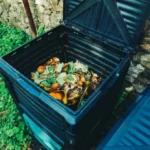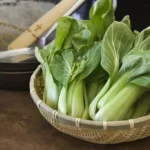Caring for chickens is a rewarding endeavor, whether you raise them for eggs, meat, or simply as beloved backyard companions. Central to their health and productivity is their diet. Chickens, like all living creatures, require a balanced and nutritious diet to thrive. As a poultry keeper, you may find yourself pondering the question: Can chickens eat potato peels? In this article, we’ll explore the intricate world of chicken nutrition, shedding light on the importance of a well-rounded diet and addressing whether potato peels can safely be incorporated into your flock’s meals. Understanding chicken nutrition is the first step toward ensuring the well-being of your feathered friends and making informed dietary choices for them.
Chicken Nutrition
Chicken nutrition is a complex and essential subject for any poultry enthusiast. To maintain healthy and productive chickens, it’s vital to comprehend the dietary requirements of these birds. Chickens need a balanced diet that provides the necessary nutrients for their growth, egg production, and overall well-being.
Protein is a fundamental component of a chicken’s diet, as it supports muscle development and feather growth. Chickens also require carbohydrates, which serve as an energy source. Vitamins and minerals are essential for maintaining bone strength, preventing deficiencies, and ensuring a well-functioning immune system.
A well-balanced diet is pivotal in keeping your chickens healthy and productive. While commercial poultry feed is a convenient and dependable option, many poultry keepers supplement their chickens’ diets with kitchen scraps and garden surplus. However, it’s crucial to know which foods are suitable for chickens and which should be avoided to prevent health issues. This brings us to the question at hand: Can chickens safely consume potato peels, and what considerations should be taken into account when providing this kitchen scrap?
Can Chickens Eat Potato Peels?
Now, let’s address the question: Can chickens eat potato peels? The answer is yes, with some important considerations. Potato peels can be part of a chicken’s diet, but it’s essential to be aware of the potential benefits and risks.
Potato peels are a source of carbohydrates and fiber. They can provide chickens with some energy and dietary roughage. However, it’s crucial to remember that potato peels are not a significant source of essential nutrients like protein, vitamins, or minerals that chickens need for their overall health. Therefore, potato peels should only be offered as a supplementary treat and not as a primary source of food.
When feeding potato peels to chickens, it’s important to exercise moderation. Overfeeding potato peels or providing them in excessive quantities can lead to digestive issues. Potatoes, including their peels, contain solanine, a naturally occurring chemical that can be harmful in large amounts. To minimize the risks, potato peels should be only a small part of a varied diet for your chickens.
Preparing Potato Peels for Chickens
To safely include potato peels in your chicken’s diet, it’s essential to follow some basic guidelines for preparation:
- Wash Thoroughly: Start by washing the potato peels to remove any dirt, residues, or contaminants. Clean peels reduce the risk of exposing your chickens to harmful substances.
- Avoid Green Parts: Potatoes with green patches on their skin contain higher levels of solanine, which can be toxic. Ensure that the potato peels you provide do not have any green areas.
- Cooking: Some poultry keepers choose to cook potato peels before feeding them to chickens. Cooking can help break down some of the potentially harmful compounds and make the peels easier to digest.
- Moderation: As mentioned earlier, it’s crucial to offer potato peels in moderation. A small portion as an occasional treat is the best approach. Balance their diet with other nutrient-rich foods to ensure they receive the essential nutrients they need.
By following these preparation and feeding guidelines, you can safely introduce potato peels as an occasional treat for your chickens. Keep in mind that variety in their diet is key to their overall health, and potato peels should not be their primary source of nutrition.
Common Kitchen Scraps for Chickens
In addition to potato peels, there are several common kitchen scraps that chickens can enjoy as part of their diet. These scraps can be a valuable addition to their nutrition when used in moderation. Here are some kitchen scraps that are generally safe for chickens:
- Fruit Scraps: Leftover fruit peels, cores, and small fruit pieces are usually well-received by chickens. They provide vitamins and natural sugars. Avoid feeding citrus peels, as they can be too acidic for chickens.
- Vegetable Scraps: Chickens appreciate vegetable scraps like carrot tops, cucumber ends, and lettuce leaves. These scraps offer dietary fiber and essential nutrients.
- Bread and Grains: Stale bread, cereal, and cooked rice or pasta can be given to chickens in moderation. These items provide carbohydrates and can be used to supplement their diet.
- Leafy Greens: Chickens enjoy leafy greens like kale, spinach, and Swiss chard. These greens are packed with vitamins and minerals that benefit their health.
- Eggshells: Crushed eggshells are a fantastic source of calcium, which is crucial for eggshell formation in laying hens. Be sure to clean and crush the eggshells before offering them.
Monitoring Chicken Health
Feeding your chickens a diverse diet, including kitchen scraps in moderation, contributes to their well-being. However, it’s equally important to keep a watchful eye on their health. Here are some key points to consider:
- Behavioral Observation: Pay attention to your chickens’ behavior. Any sudden changes, such as lethargy or unusual aggressiveness, can be signs of health issues.
- Egg Production: Monitor the egg production of laying hens. A significant drop in egg production or the production of soft-shelled eggs may indicate nutritional problems.
- Digestive Health: Watch for signs of digestive issues such as diarrhea, which can result from feeding certain scraps in excess. Ensure that they have access to clean, fresh water.
- Weight Maintenance: Chickens should maintain a healthy weight. Drastic weight loss or obesity can be signs of nutritional imbalances or other health concerns.
- Consult a Veterinarian: If you notice any persistent health issues or are uncertain about your chickens’ diet, it’s advisable to consult a veterinarian with experience in poultry care.
Conclusion
In conclusion, the question of whether chickens can eat potato peels opens up a broader discussion about the role of kitchen scraps in their diet. Chickens can indeed enjoy potato peels, but only when properly prepared and offered in moderation. A balanced diet, with a variety of kitchen scraps and commercial feed, ensures that your chickens receive the necessary nutrients for their health and productivity.
By following guidelines for safe food preparation, monitoring your chickens’ health, and consulting with a veterinarian when needed, you can provide the best care for your flock. Remember that responsible feeding practices are key to the well-being of your feathered companions, ensuring their happiness and the production of quality eggs, if applicable.



